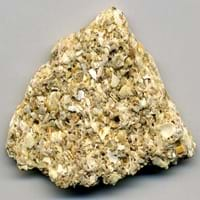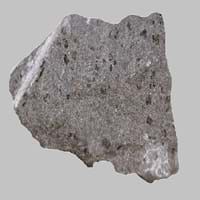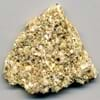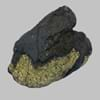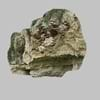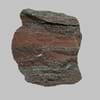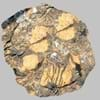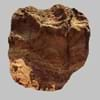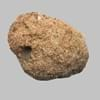Coquina and Tephrite
Definition
Definition
Coquina is a sedimentary rock that is composed either wholly or almost entirely of the transported, abraded, and mechanically-sorted fragments of the shells of molluscs, trilobites, brachiopods, or other invertebrates
Tephrite is an aphanitic to porphyritic textured, volcanic igneous rock
History
Origin
European Foreland Basins
Germany
Discoverer
Unknown
Van Tooren
Etymology
From Concha (Latin)+ Coquina(Spanish) +conch(English)= Couquina (mid 19th century)
From Greek tephra, ashes from Indo-European base, to burn
Class
Sedimentary Rocks
Igneous Rocks
Sub-Class
Durable Rock, Soft Rock
Durable Rock, Hard Rock
Family
Group
Not Applicable
Volcanic
Other Categories
Coarse Grained Rock, Opaque Rock
Coarse Grained Rock, Fine Grained Rock, Medium Grained Rock, Opaque Rock
Texture
Texture
Clastic
Aphanitic to Porphyritic
Color
Beige, Buff, Orange
Black, Brown, Colourless, Green, Grey, White
Maintenance
More
Less
Durability
Non-Durable
Durable
Water Resistant
No
Yes
Scratch Resistant
No
Yes
Stain Resistant
No
No
Wind Resistant
No
Yes
Acid Resistant
No
No
Appearance
Layered, Banded, Veined and Shiny
Vesicular
Uses
Architecture
Interior Uses
Decorative Aggregates, Homes, Hotels, Interior Decoration
Decorative Aggregates, Flooring, Homes, Interior Decoration
Exterior Uses
Garden Decoration, Office Buildings
As Building Stone, As Facing Stone, Garden Decoration, Office Buildings
Other Architectural Uses
Curbing
Curbing
Industry
Construction Industry
Building houses or walls, Construction Aggregate
Landscaping
Medical Industry
Not Yet Used
Not Yet Used
Antiquity Uses
Artifacts, Monuments, Sculpture, Small Figurines
Artifacts, Sculpture
Other Uses
Commercial Uses
Creating Artwork
Production of Lime, Soil Conditioner
Types
Types
Not Available
Not Available
Features
Available in Lots of Colors and Patterns, Is one of the oldest rock
Host Rock for Lead
Archaeological Significance
Monuments
Used
Not Yet Used
Famous Monuments
Data Not Available
Not Applicable
Sculpture
Used
Used
Famous Sculptures
Data Not Available
Data Not Available
Pictographs
Used
Not Used
Petroglyphs
Used
Not Used
Figurines
Used
Used
Fossils
Present
Absent
Formation
Formation
Coquina is a sedimentary rock which is formed when billions of small clam-like seashell, called Coquina, or cockleshell are die and hence are deposited, buried and turns into a rock when pressure is applied.
Tephrite is a fine-grained, hard rock which is a type of metasomatite, essentially altered basalt. It forms with or without crystallization, either below the surface as intrusive rocks or on the surface as extrusive rocks.
Composition
Mineral Content
Apatite, Augite, Bronzite, Calcite, Chert, Chlorite, Clay Minerals, Epidote, Feldspar, Garnet, Micas, Muscovite or Illite
Alkali feldspar, Nepheline, Plagioclase, Pyroxene
Compound Content
CaO, Carbon Dioxide, Iron(III) Oxide, MgO
CaO, Carbon Dioxide, MgO, Silicon Dioxide
Transformation
Metamorphism
No
Yes
Types of Metamorphism
Not Applicable
Cataclastic Metamorphism, Contact Metamorphism, Impact Metamorphism, Regional Metamorphism
Weathering
Yes
Yes
Types of Weathering
Biological Weathering, Chemical Weathering, Mechanical Weathering
Biological Weathering, Chemical Weathering, Mechanical Weathering
Erosion
Yes
Yes
Types of Erosion
Coastal Erosion, Sea Erosion, Water Erosion, Wind Erosion
Chemical Erosion, Coastal Erosion, Glacier Erosion, Sea Erosion, Water Erosion
Properties
Physical Properties
Hardness
1-2
6.5
Grain Size
Coarse Grained
Medium to Fine Coarse Grained
Fracture
Irregular
Uneven
Streak
White
Bluish Black
Porosity
Highly Porous
Very Less Porous
Luster
Dull to Vitreous to Submetallic
Subvitreous to Dull
Compressive Strength
Not Available
90.00 N/mm2
22
Cleavage
Not Available
Crenulation and Pervasive
Toughness
Not Available
2.4
Specific Gravity
1.10-2.24
2.86
Transparency
Opaque
Opaque
Density
2.8-2.9 g/cm3
2.8-2.9 g/cm3
Thermal Properties
Specific Heat Capacity
Not Available
0.92 kJ/Kg K
10
Resistance
Heat Resistant, Impact Resistant, Pressure Resistant, Wear Resistant
Heat Resistant, Impact Resistant
Reserves
Deposits in Eastern Continents
Asia
Not Yet Found
Not Yet Found
Africa
Not Yet Found
Namibia, Uganda
Europe
United Kingdom
Germany, Hungary, Italy, Portugal, Spain
Others
Not Yet Found
Not Yet Found
Deposits in Western Continents
North America
USA
USA
South America
Not Yet Found
Not Yet Found
Deposits in Oceania Continent
Australia
Not Yet Found
New Zealand, Western Australia
All about Coquina and Tephrite Properties
Know all about Coquina and Tephrite properties here. All properties of rocks are important as they define the type of rock and its application. Coquina belongs to Sedimentary Rocks while Tephrite belongs to Igneous Rocks.Texture of Coquina is Clastic whereas that of Tephrite is Aphanitic to Porphyritic. Coquina appears Layered, Banded, Veined and Shiny and Tephrite appears Vesicular. The luster of Coquina is dull to vitreous to submetallic while that of Tephrite is subvitreous to dull. Coquina is available in beige, buff, orange colors whereas Tephrite is available in black, brown, colourless, green, grey, white colors. The commercial uses of Coquina are creating artwork and that of Tephrite are production of lime, soil conditioner.
|
||
|
||
|
